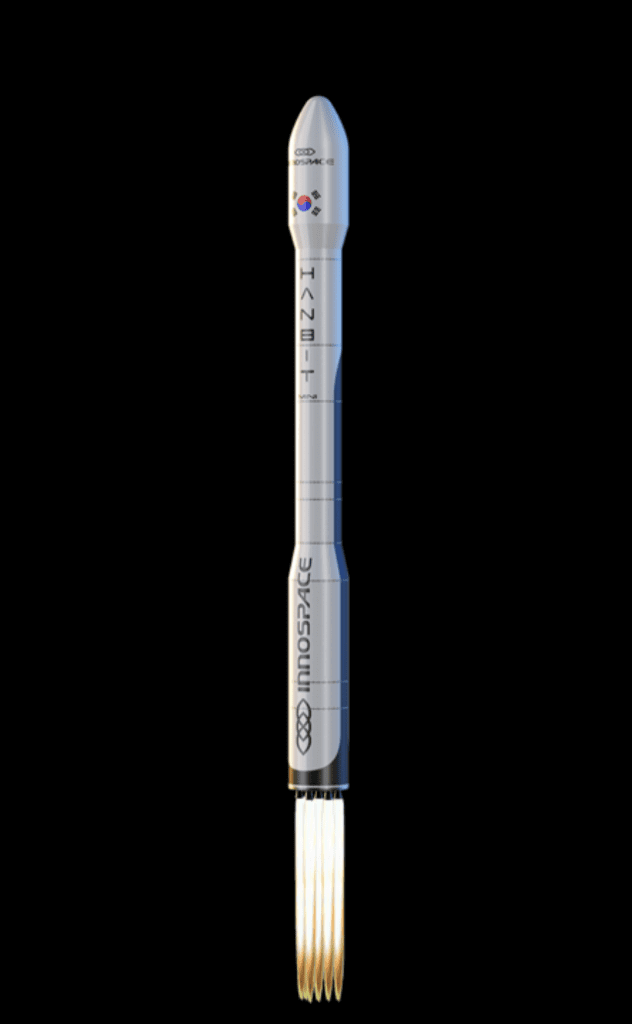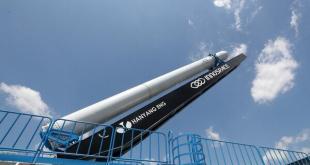
Ibadan, 13 December 2022. – South Korean rocket startup Innospace plans to launch its suborbital technology demonstration rocket, HANBIT-TLV, in December. The launch will validate the company’s hybrid rocket engine that uses liquid oxygen and paraffin-based propellants. While the company set December 14-21 as a launch window at the Alcântara Space Center in northern Brazil, the company would decide the exact date and time after consultations with the Brazilian air force.
HANBIT-TLV is a 16.3-meter, single-stage test rocket. The rocket is a precursor to the company’s planned commercial satellite launcher Hanbit-Nano, a two-stage small satellite launcher to carry up to a 50-kilogram payload to a 500- kilometer sun-synchronous orbit. Furthermore, a 15-ton-thrust hybrid rocket engine using liquid oxygen and paraffin-based propellants powers the first stages of the two rockets. Meanwhile, the Hanbit-Nano’s upper stage is equipped with a 3-ton hybrid engine.
Aboard HANBIT-TLV is an inertial navigation system called SISNAV, which the Brazilian Department of Aerospace Science and Technology (DCTA), under the supervision of the Brazilian Air Force, developed. In April, the company signed an agreement with the Brazilian Department of Aerospace Science and Technology to launch SISNAV on the rocket in exchange for using Alcântara Space Center.
Furthermore, the payload is a navigation device that employs a computer, motion sensors, and rotation sensors to continuously calculate by dead reckoning the position, orientation, and velocity of a moving object without needing external references.
Speaking on the launch, Kim Soo-jong Kim, CEO of Innospace, noted, “This test flight of HANBIT-TLV suborbital rocket will serve as an important step to enter the small satellite launch service market.”




